EMDR therapy is a type of psychotherapy that is used to treat a variety of mental health conditions. This therapy can be used to treat trauma, anxiety, depression, and even addiction. EMDR therapy is unique in that it uses eye movements or other forms of bilateral stimulation to help the client process and heal from their experience.
At Athens Recovery, we use EMDR therapy as part of our comprehensive approach to addiction treatment. Learn more about what EMDR therapy is like and how it fits into addiction treatment by calling 844.959.4998 today.
An Overview of EMDR Therapy and Its Role in Addiction Treatment
EMDR therapy is a therapeutic approach that involves the use of eye movements or other forms of bilateral stimulation to help participants work through past experiences. This therapy was developed by psychologist Dr. Francine Shapiro in the late 1980s. Since then, it has been used to treat a variety of mental health conditions. EMDR therapy is unique in how it helps the client access and process memories and experiences that may be causing them distress. This processing can help reduce the negative symptoms associated with these experiences.
As part of our addiction treatment program, we use EMDR therapy to help our clients process and heal from the trauma that may be contributing to their addiction. This trauma can stem from past experiences such as childhood abuse, sexual assault, or the death of a loved one.
What to Expect in EMDR Therapy Sessions
EMDR therapy sessions typically last for 60-90 minutes. During this time, you will work with your therapist to identify a memory or experience that is causing you distress. Once this memory or experience has been identified, your therapist will guide you through a series of eye movements or other forms of bilateral stimulation.
It is important to note that you will not be asked to relive the experience during these sessions. The goal is simply to help you process the experience so that you can move on from it. Your therapist will also provide you with coping skills that you can use outside of sessions to deal with any distress that may come up.
The Biggest Benefits of EMDR Therapy
Before beginning EMDR therapy, it is important to understand what you can expect from these sessions and what the biggest benefits are. Benefits include:
- Relief from symptoms – One of the most common benefits of EMDR therapy is relief from the symptoms associated with trauma, anxiety, depression, and addiction. This relief can be long-lasting and can help improve your overall quality of life.
- Improved sleep – Many people who undergo EMDR therapy report improved sleep after completing treatment. This is likely due to the fact that they are no longer experiencing the same level of distress as they were before treatment.
- Increased ability to cope – Your therapist will provide you with coping skills during treatment to help you deal with any distress that may arise after treatment ends. These skills can help you feel more prepared to handle whatever life throws your way.
- Improved relationships – The improved ability to cope that comes with EMDR therapy can also lead to improved relationships with family members, friends, and romantic partners. When you are not as burdened by your past experiences, you are better able to focus on your current relationships.
- Greater sense of control – Many people who undergo EMDR therapy report feeling like they have a greater sense of control over their lives after treatment ends. This increased sense of control can lead to improved self-esteem and confidence levels. If you are struggling with addiction, this increased sense of control can be especially beneficial as it can help reduce the risk of relapse.
Call Athens Recovery Today for More on EMDR Therapy
If you would like more information on our approach to addiction treatment at Athens Recovery, please call us today at 844.959.4998 or reach out to us online. Our admissions counselors are available to answer any questions you may have about our program or how we can best serve your needs.

